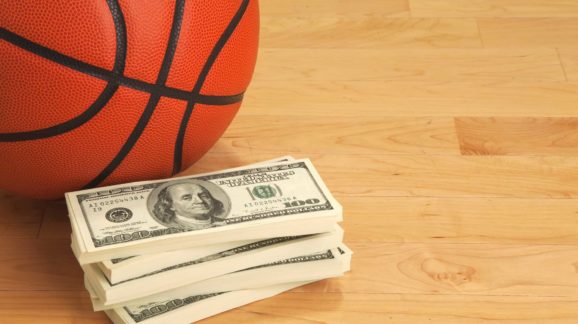States: Protect Taxpayers and Reject Sports Gambling Rent-Seekers

 Since 1992, gambling on professional sports has been largely illegal in the U.S. thanks to an ill-advised federal law that barred any state that hadn’t already legalized the activity (functionally, just Nevada) from ever doing so. The major sports leagues originally sold the ban as necessary to prevent the spread of sports betting and quell fears about match-fixing, but it has been an utter failure. Not only did the ban create an enormous illicit sports betting market, but it also unconstitutionally hog-tied state legislatures from regulating the activity and collecting billions in tax revenue. Now that the Supreme Court is poised to invalidate the federal law and let states finally legalize sports betting, there is no shortage of special interests lobbying legislatures for handouts. But, if states don’t want to kill the new industry before it even gets started, they should do what Congress failed to do 25 years ago: reject the rent-seekers.
Since 1992, gambling on professional sports has been largely illegal in the U.S. thanks to an ill-advised federal law that barred any state that hadn’t already legalized the activity (functionally, just Nevada) from ever doing so. The major sports leagues originally sold the ban as necessary to prevent the spread of sports betting and quell fears about match-fixing, but it has been an utter failure. Not only did the ban create an enormous illicit sports betting market, but it also unconstitutionally hog-tied state legislatures from regulating the activity and collecting billions in tax revenue. Now that the Supreme Court is poised to invalidate the federal law and let states finally legalize sports betting, there is no shortage of special interests lobbying legislatures for handouts. But, if states don’t want to kill the new industry before it even gets started, they should do what Congress failed to do 25 years ago: reject the rent-seekers.
A few of the sports leagues have come around, finally agreeing with the majority of the people in the nation who believe prohibition simply doesn’t work and that rampant illegal sports betting ought to be legitimized by the states. However, they have made it clear their cooperation comes with a price tag. At the New York Senate Committee on Racing, Gaming and Wagering, the National Basketball Association (NBA) asserted that if the state wants to legalize sports betting it ought to force sports books to pay the league a fee. The bookies supposedly owe the NBA money, the league’s attorney Dan Spillane testified, because of the commercial value their games create for the gambling industry. “Without our games and fans, there could be no sports betting,” Spillane argued and added that if gambling is legalized “sports leagues will need to invest more in compliance and enforcement, including bet monitoring, investigations and education.”
Even if Spillane was correct that legalizing the huge illicit betting market would create new costs for the leagues, it is not the taxpayers’ job to pay these costs. And make no mistake, it is the taxpayers who will pay this “integrity fee” when bookies pass it along to bettors in the form of worse odds and lower payouts. But, as the major concern with the potential for match-fixing is that it would harm sports reputation, fan engagement, and thus profits, it’s the NBA and the other leagues who ought to use some of their billions of dollars in profits to protect their reputations, and educate and monitor players and officials.
But, the idea that legalizing gambling increases the risk of match-fixing is a myth. Corruption of players is far more likely when there is an unregulated gambling market, which, with its high liquidity and lower chance of being caught, is far more attractive to criminals.
More importantly, if New York wants to pay off the sports leagues for whatever reason, it should do so in through a transparent tax, rather than compelling one private entity (bookies) to make direct payments to another private entity (leagues). While one percent might seem small, what the NBA wants is a “handle fee.” Meaning, the bookies will fork over one percent of all bets placed on basketball games. As sports books generally give back most of their handle as winnings—keeping a slim five percent as profit—the one percent fee actually amounts to a much larger 30 percent slice of bookies’ revenue. Not only does that mean less money paid out to winners, but also 30 percent less money going to state governments in the form of tax revenue.
Worst of all, the handout would be a hidden consumer tax. Bettors will unknowingly pay the fee when they receive a smaller payout. Stealth taxes like this allow politicians to siphon money from consumers without facing political accountability for bad policy. It’s a familiar move for sports leagues fond of convincing local governments to pay for the boondoggles that are sports stadiums. For example, lawmakers can skirt the bad publicity created by putting a direct tax on voters while still generating the billions it sometimes takes to build arenas on the sly by instead raising sales taxes or hotel occupancy taxes. This way, politicians get to have their cake and eat it to: they aren’t blamed for consumers losing money, but also they get to support the home team.
In this case, however, the stealth tax will hit consumers twice. Because illegal bookies won’t pay the integrity fee, they will be able to offer bettors better odds and bigger payouts than legal operators. As a result, gamblers will be less likely to place bets with legal operators, keeping even more money in the unregulated and untaxed illicit betting market. This, again, will reduce the overall revenue states could generate by taxing the activity.
Money aside, the NBA’s assertion that bookies owe them money because of the “value” their games create is not only a ridiculous, but also dangerous argument to make. If it were government’s job to make any private business pay for the costs or benefits its existence creates for another, one could argue that the leagues owe bookies money. After all, studies show that when sports fans bet on games, they are more engaged, watching more games and more minutes of any particular event. Because greater viewership means more advertising revenue, sports books could rightly argue that their existence increases the price leagues may charge to broadcasters for the rights to air their games.
Of course, nobody is arguing that the NBA ought to pay sports books one percent of the $24 billion Turner Broadcasting is paying the league for the right to air basketball games. Similarly, neither bookies nor taxpayers should be forced to pay the leagues (any more) for the costs of maintaining their massively lucrative businesses. For the last 25 years, the states have lost out on millions in tax revenue they could have collected from sports betting, thanks to a ban pushed by and maintained by sports leagues. The federal government made a grave error in 1992 when it when it put the interest of these private profit-earning businesses over those of the states and voters. Now that this failed federal policy is on its way out, states should not repeat the mistake.